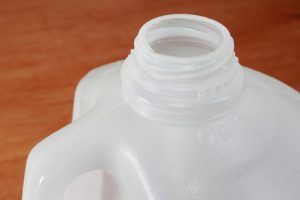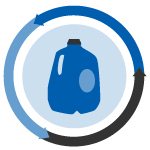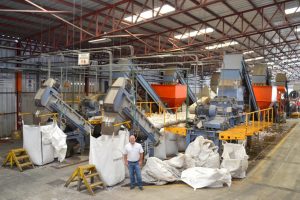 Canada collected more plastic for recycling in 2014 than it did the year before, with big boosts in curbside-collected film driving the increase.
Canada collected more plastic for recycling in 2014 than it did the year before, with big boosts in curbside-collected film driving the increase.

 Canada collected more plastic for recycling in 2014 than it did the year before, with big boosts in curbside-collected film driving the increase.
Canada collected more plastic for recycling in 2014 than it did the year before, with big boosts in curbside-collected film driving the increase.
 Canadian HDPE recovery offset decreased recycling of other resins in 2015, according to a recent report, giving overall plastic packaging recycling a net increase for the year.
Canadian HDPE recovery offset decreased recycling of other resins in 2015, according to a recent report, giving overall plastic packaging recycling a net increase for the year.
 ExxonMobil is part of a project developing a type of flexible film that could be more easily integrated into the PE collection stream, and a detergent bottle maker focuses on recycled HDPE.
ExxonMobil is part of a project developing a type of flexible film that could be more easily integrated into the PE collection stream, and a detergent bottle maker focuses on recycled HDPE.
The company that purchased a pair of plastics recycling firms this week says its move was driven by increasing demand for recycled content in the packaging space. Continue Reading
Consolidated Container Co, which recently acquired two major suppliers of recycled resins, plans to make structural and personnel changes at the companies. Continue Reading
 Plentiful supply of curbside HDPE bales in the Southeast and U.S. Gulf Coast area pushed prices lower in mid-May as suppliers sought to move their rising inventories.
Plentiful supply of curbside HDPE bales in the Southeast and U.S. Gulf Coast area pushed prices lower in mid-May as suppliers sought to move their rising inventories.
 An improvement in virgin feedstocks allows better performance in recycled-content HDPE products, and two companies cooperate to supply a continuous PET-to-textile-fibers line.
An improvement in virgin feedstocks allows better performance in recycled-content HDPE products, and two companies cooperate to supply a continuous PET-to-textile-fibers line.
 When recycling processor Invema switched from a high-speed friction washer to an updated system relying on boilers and chemicals, something unexpected happened: Energy usage decreased by 20 percent.
When recycling processor Invema switched from a high-speed friction washer to an updated system relying on boilers and chemicals, something unexpected happened: Energy usage decreased by 20 percent.
 Demand for HDPE scrap bales retreated a bit in early April following a mid-March surge. This lackluster demand, coupled with rising bale supply from major population centers, drove scrap prices lower.
Demand for HDPE scrap bales retreated a bit in early April following a mid-March surge. This lackluster demand, coupled with rising bale supply from major population centers, drove scrap prices lower.
 Drones patrol Britain’s beaches in search of shoreline plastics, and prices rise in the U.S. for recovered HDPE and PET.
Drones patrol Britain’s beaches in search of shoreline plastics, and prices rise in the U.S. for recovered HDPE and PET.
